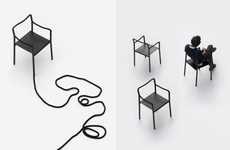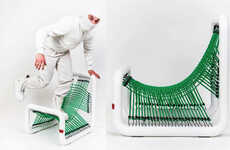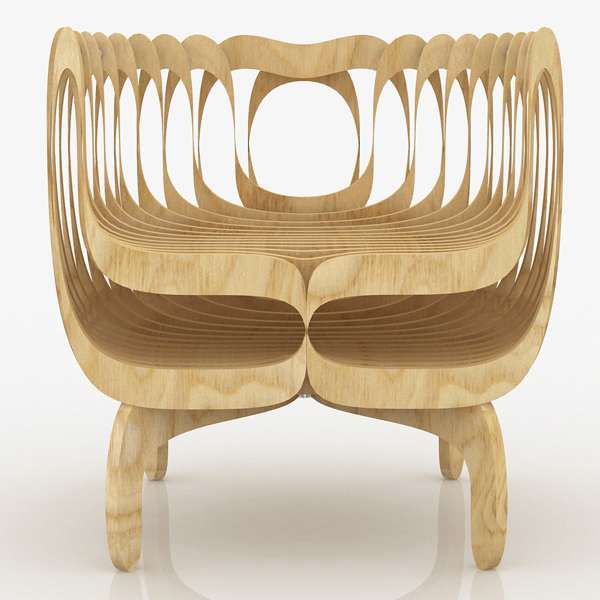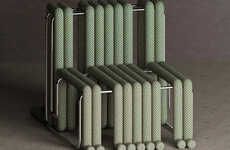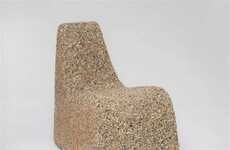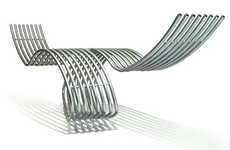
Eduardo Benamor's Airy Rapigattoli Seating
Ines Freitas — January 12, 2010 — Eco
References: benamorduarte & zerodois
The Rapigattoli by Eduardo Benamor is a chair, but a chair resembling what it is supposed to host: a human body, or at least the bones that structure the human body.
The Rapigattoli chair reflects on the idea of adaptation and scale. It transposes figurative and geometric drawing techniques on a physical object such as a chair.
Although still a prototype, it looks organic and at the same time futuristic.
Eduardo Benamor is a Portuguese architect born in 1975. In Eduardo Benamor’s words:
The Rapigattoli chair reflects on the idea of adaptation and scale. It transposes figurative and geometric drawing techniques on a physical object such as a chair.
Although still a prototype, it looks organic and at the same time futuristic.
Eduardo Benamor is a Portuguese architect born in 1975. In Eduardo Benamor’s words:
Trend Themes
1. Organic Furniture - Designing furniture that reflects the organic structure of the human body can lead to unique and futuristic furniture designs.
2. Adaptive Seating - Creating chairs that can adapt to different body types and sizes allows for greater inclusivity and customization for users.
3. Geometric Transposition - Applying figurative and geometric drawing techniques on physical objects can result in unique and visually appealing design aesthetics.
Industry Implications
1. Furniture Design - Incorporating organic structures and adaptive features into furniture design can differentiate products and appeal to consumers seeking unique and customizable options.
2. Architecture - The use of unique design techniques in furniture can inspire new architectural designs that incorporate similar aesthetics and principles.
3. Interior Design - Designing spaces with furniture that reflects organic shapes and unique aesthetic traits creates visually interesting and memorable environments for users.
2.7
Score
Popularity
Activity
Freshness




